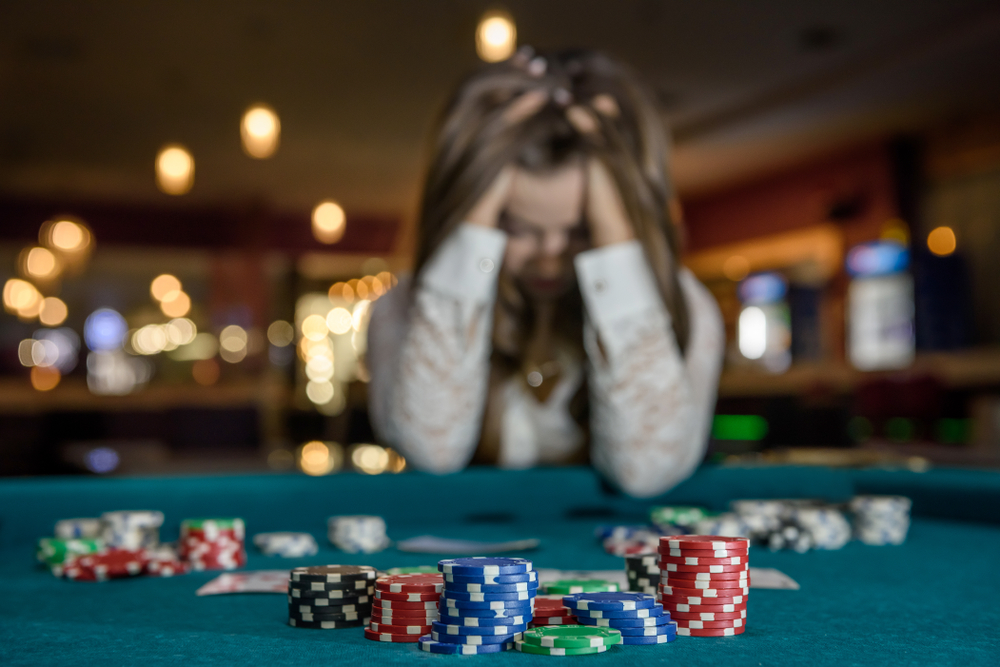From sports betting apps and trips to a nearby casino, to friendly wagers on your favorite Tennessee team, gambling is a common, fun way to connect with (or compete against) friends. But as with most forms of recreation, too much of a good thing can become bad: once harmless gambling can become an addiction.
The Diagnostic and Statistical Manual of Mental Disorders (Fifth Edition) defines gambling disorder and classifies it as an addictive disorder. So, how can you know if you have an addiction to gambling?
There are multiple tell-tale signs of a gambling problem. Keep reading to learn about signs and symptoms that indicate you or a loved one may have a gambling addiction.
How Widespread is Problem Gambling in the U.S.?
Problem gambling is a significant issue affecting millions of U.S. adults each year. An estimated 2.5 million adults, or about 1% of the population, struggle with severe gambling problems annually. (The National Council of Problem Gambling)
In addition to those with severe issues, there’s a larger group facing mild to moderate gambling difficulties. This group includes 5-8 million individuals, or roughly 2-3% (The National Council of Problem Gambling) of U.S. adults. These individuals don’t meet the full criteria for a gambling disorder but still encounter various problems due to their gambling habits.
Despite these concerns, research shows that the majority of adults who gamble do so responsibly, without facing significant issues. However, the existence of such a considerable number of problem gamblers highlights the need for awareness and support systems in place to address this public health concern.
In summary:
Severe gambling problems: 2.5 million adults (1%)
Mild to moderate gambling issues: 5-8 million adults (2-3%)
While most people can gamble responsibly, the prevalence of gambling problems underscores the importance of acknowledging and addressing this issue.
Is It Ok to Want to Keep Gambling?
Oftentimes, losing money gambling does not stop someone from placing their next bet—or next 10 bets. It’s actually pretty common for individuals to want to continue gambling, or “chasing,” after they experience a loss, seeking to at least win back what they lost. While continuing to gamble after losing money is not inherently a problem, it can become one.
Those who feel the need to chase their losses may show signs of a gambling problem. Chasing losses is a cognitive distortion where individuals think that they can win back what they lost if they just keep going. They may believe that past losses increase the chance that they will win in the future or that they can predict the outcomes.
These predictions can include ideas like hot machines and good luck charms. However, this sense of control is, in reality, an illusion. Unchecked loss chasing can lead to greater financial distress, which is considered a sign of a gambling problem.
Rather than continuing to chase their losses, individuals may want to practice responsible gambling techniques, such as:
- Setting limits with a budget
- Leaving credit and debit cards at home
- Take frequent breaks, like getting a coffee, something to eat, or fresh air
If an individual cannot resist the urge to chase their losses, it may be time to seek treatment for problem gambling behavior.
Assessing Your Risk for Problem Gambling
Understanding the broader impact of gambling problems is important, but it’s also key to look at your personal risk factors. Before you or someone you care about decides to gamble, take a moment to ask yourself these questions:
- Have you ever struggled with alcohol or substance misuse, now or in the past?
- Have you experienced addiction in any form?
- Have you ever gone through treatment, whether inpatient or outpatient, for an addiction?
- Do you regularly attend support groups, such as AA or NA?
If you answered “yes” to any of these, it might mean there’s a higher risk for developing gambling-related problems. It’s important to consider these factors when making decisions about gambling.
By being aware of both the general risks associated with gambling and your own personal situation, you can make more informed choices. This approach helps you stay in control and seek support if and when you need it.
Which Gambling Types Are Most Likely to Lead to Problem Gambling?
Problem gambling can happen with any type of gambling, but some games tend to increase the risk more than others, especially when a person struggles to control their gambling habits. Here’s a breakdown of the types that are more likely to lead to problems:
Speed and Frequency
Games that offer fast results and quick cycles are often linked to higher rates of problem gambling. These games make it harder to step away, as the outcome comes quickly and keeps players engaged.
Examples include:
- Slot Machines: With their rapid spins and immediate results, they can quickly draw people in.
- Online Betting: Easy access and instant outcomes make it tough to disengage.
- Scratch Cards: The instant win or loss, with no waiting period between plays, can lead to repetitive behavior.
High-Risk Games
Games that offer high stakes and quick rewards also pose a higher risk for developing gambling problems:
- Casino Table Games: Games like roulette or blackjack, with their fast pace and the possibility of large wins or losses, can fuel compulsive gambling.
- Sports Betting: The thrill of big wins and constant action can make it difficult to resist the urge to keep betting.
Accessibility and Convenience
Online gambling has made it easier than ever to gamble anytime, anywhere. The convenience and accessibility of online platforms have contributed to more people facing gambling-related issues.
In Summary
While any form of gambling can become problematic if not kept in check, games that are fast-paced, high-stakes, and easily accessible tend to be more closely associated with an increased risk of problem gambling.
What Problems Can Compulsive Gambling Cause?
Problem gambling behavior can contribute to a myriad of problems, including considerable financial problems, rips in their closest relationships, physical distress, and psychological harm. Problem gambling is often associated with increased suicidal ideation and attempts, especially in the context of comorbid mental disorders. If you notice that you or someone you love experiences these problems, there is a good chance they have a gambling problem. But what do these problems specifically look like?
Financial Difficulties
Problem gambling behavior can result in significant financial losses. These losses can contribute to a decline in quality of life that often includes loss of funds, debt, bankruptcy, and the inability to meet financial obligations, like rent or mortgages.
Financial harms can also include behaviors like depleting savings, cutting back on insurance, forgoing needed repairs, and putting off purchasing necessary household items. In severe cases, financial losses may lead to being unable to pay essential bills, losing one’s home, or even bankruptcy.
These harms may also negatively impact family members who may lose money from joint savings and income.
Additionally, many individuals experience debt from borrowing money from family, friends, banks (i.e., loans), or credit cards. For some individuals, the financial consequences of problem gambling behavior can be so severe that they are unable to repay their debts, thus leading to bankruptcy.
Relationship Problems
On average, problem gambling harms approximately 6 other people, usually who are individuals close to the one with a gambling problem. Relationships can suffer when the individual with problem gambling lies about their behavior, causing distrust, in addition to financial distress. These strained relationships can include family members, friends, and partners.
Lying about gambling behaviors to loved ones in order to conceal debt or a gambling addiction can lead to conflict, anger, stress, and distrust. Repeatedly hiding problem gambling behavior and related harms may completely fracture relationships and contribute to the complete loss of relationships.
Furthermore, long-term financial harms can impact close relationships by having to postpone big life goals, like buying a home or having a baby. These affected relationships can cause close loved ones to be dissatisfied with their quality of life, leading to discord and further distrust.
Although difficult, rebuilding trust in relationships is possible. It does, however, require dedication and patience from everybody, which can be a challenge. But receiving the right treatment can significantly help individuals to begin improving their lives and relationships with others.
Isolation and Loneliness
Similarly, problem gambling behavior may lead to isolation. Some individuals may withdraw from social activities and isolate themselves to hide their gambling behavior. Isolation may also occur due to the experience of depression from problem gambling behavior. Additionally, discord in interpersonal relationships may lead to a lack of social support, thus leading to isolation.
Because humans tend to be social creatures, isolation can lead to even more problems, psychologically and emotionally.
Psychological and Emotional Distress
Problem gambling behavior can contribute to significant psychological harm and emotional distress. For instance, many individuals may experience anxiety and stress due to gambling-related harms (e.g., financial distress and discord in interpersonal relationships) or related to gambling activity (e.g., anticipation of gambling outcomes).
Furthermore, problem gambling behavior can cause and increase existing anxiety and distressing worry, significant sadness—possibly depression, strong feelings of guilt and shame, and other mental health problems as a person’s gambling involvement spirals.
Similarly, an individual may experience feelings of depression due to their problem gambling behavior, which can lead to feelings of hopelessness, sadness, guilt, and shame. These feelings may also contribute to suicidal thoughts or behaviors, particularly when individuals feel overwhelmed by financial problems and hopelessness.
Psychological harm from problem gambling behavior can also affect loved ones and mirror the same symptoms as the individual experiencing problem gambling behavior. Moreover, the consequences of problem gambling behavior can contribute to significant psychological harm to the individual and their loved ones.
Legal Problems and Criminal Issues
Uncontrolled gambling may lead to legal problems, such as arrests for theft, embezzlement, fraud, or other crimes committed in order to fund gambling activities. Efforts to secure funds to gamble sometimes result in people engaging in behaviors that they would not have considered prior to excessively gambling.
Though hard to precisely quantify, it appears that up to 10% of those with a gambling problem will engage in criminal efforts to gain access to money. While violent crime is rare, non-violent crimes such as skimming the register at work, charging the business card to fund gambling behaviors, and using access to others’ bank accounts are more common.
Health Problems
Excessive gambling behavior can contribute to stress-related health problems, including insomnia, high blood pressure, digestive issues, and substance misuse. Unfortunately, these stress-related problems can increase and cause unnecessary medical costs to themselves and their families.
Work Problems or Academic Problems
Engaging in uncontrolled gambling can impair performance at work or school due to distractions, decreased productivity, and financial stress. Such harms are often subtle—even the person who gambles may not notice them—but over time, they erode a person’s reputation and performance.
Recent evidence suggests that some college students who gamble delay their college degree and potentially drop out of school. Such academic harms will lead to long-term reduction in earning potential and may reduce self-esteem.
How Do I Know I Have a Gambling Problem?
Recognizing that you might have a gambling problem is the first step toward change. If you’re feeling concerned about your gambling habits, you’re not alone. Many people experience similar doubts and anxieties. Below, you’ll find signs to look out for, along with resources to help you evaluate your situation and decide if it’s time to seek support.
What are Common Signs of a Gambling Addiction?
In addition to experiencing gambling-related harms, there are specific signs that can tip off whether or not someone has a gambling problem. The behavior and rationalization of problem gamblers often include justifying their actions and downplaying the severity of their addiction.
Common signs of a gambling addiction include:
- Gambling with increasing amounts of money in order to achieve the desired excitement.
- Experiencing restlessness or irritability when attempting to cut down or stop gambling.
- Making repeated unsuccessful efforts to control, cut back, or stop gambling.
- Preoccupied with gambling (e.g., having persistent thoughts of reliving past gambling experiences or thinking of ways to get money to gamble with).
- Often gambles when feeling distressed (e.g., helpless, guilty, anxious, depressed) as a means of escape.
- After losing money by gambling, one often returns another day to get even (“chasing” one’s losses).
- Lying or hiding the extent of gambling from family and friends, lying about gambling activities, or borrowing money to gamble.
- Has jeopardized or lost a significant relationship, job, or educational or career opportunity because of gambling.
- Experiencing financial distress (e.g., debt, bankruptcy, or not paying bills).
The Vicious Cycle
Unfortunately, the psychological and emotional distress that gambling addiction can cause may also drive the individual to gamble as a coping mechanism. Of course, that only perpetuates the issue.
For example, among individuals seeking treatment, those who experience problem gambling behavior suggest that money is the main reason to quit. At the same time, money is one of the primary reasons for relapse.
Individuals grappling with gambling issues often face a heightened risk of developing additional addictions. Many affected by gambling disorders also struggle with alcohol or drug dependencies. However, it’s important to note that having a gambling problem doesn’t automatically lead to other addictions.
Some people exclusively find that gambling alone satisfies their cravings for excitement and risk, without any inclination toward other substances or activities.
Family history can also play a pivotal role in this dynamic. It’s not uncommon for those with gambling problems to have had parents who dealt with similar issues, such as alcohol abuse or gambling disorders.
In summary:
Increased Risk: Many people with gambling problems also face risks of other addictions.
Not Guaranteed: Not everyone with a gambling issue will develop other addictions.
Unique Triggers: For some, only gambling meets their psychological needs.
Family Patterns: There’s often a history of dependency in families.
Understanding the multifaceted nature of addiction can help in creating better support systems for those struggling with gambling and other potential dependencies.
How to Get Out of the Spiral
Nevertheless, individuals seeking gambling treatment reported less severe harm than people who gambled regularly. Seeking treatment is a significant part of recovery. Treatment provides an encouraging environment where individuals can begin a plan for changing their financial situation and improving their quality of life.
Can Children and Teenagers Develop Gambling Problems?
Yes, children and teenagers can develop gambling problems, and in fact, they may be more vulnerable to these issues than adults. Several factors contribute to this increased risk:
Early Exposure
Teens who are introduced to gambling at a younger age are more likely to develop addiction problems later in life. Early experiences with gambling can shape how they view risk and reward, potentially creating patterns that carry into adulthood.
Accessibility
With the rise of online gaming and betting platforms, teens now have more opportunities to gamble than ever before. The easy access can lead to experimentation, and for some, it may lead to gambling problems.
Influence and Peer Pressure
Young people are heavily influenced by their environment, including family and friends. If gambling is normalized or seen as exciting in their circle, they might view it as a harmless activity, even if it’s not.
Warning Signs
It’s important to recognize the signs of gambling problems in teens, such as mood swings, a sudden drop in academic performance, or unexplained financial struggles.
Understanding these risks is key to prevention, and it’s a reminder of how crucial it is to have open conversations and monitor behaviors around gambling.
How to Screen for Problem Gambling
Screening for gambling disorder can serve as a tool for individuals who suspect they may have a gambling disorder. These screening tools provide insight to allow individuals to seek early intervention and treatment, which can prevent the experience of gambling-related harm.
Screening tools may also validate an individual’s experience, especially for those unsure whether they are experiencing problem gambling behavior.
The Gambling Clinic® offers a screening survey for problem gambling behavior and provides access to treatment.
Counseling for Gambling Disorder
The good news for individuals who believe they may have a gambling problem is that there is gambling-specific therapy designed to manage gambling behaviors and reduce harms over time. This therapy does not require the individual to stop gambling altogether if that is what they wish. Rather, it helps them get a grip on their compulsion to gamble and teaches them ways to gamble responsibly.
Cognitive-Behavioral Therapy for Gambling Addiction
Cognitive-behavioral therapy (CBT) is a widely used therapeutic approach for individuals with problem gambling behavior and addiction overall. CBT helps individuals identify triggers and underlying risk factors that contribute to their gambling behavior. This may involve exploring personal, emotional, financial, or environmental factors influencing their gambling habits.
Additionally, CBT treatment helps individuals learn coping strategies to manage urges to gamble and deal with high-risk situations. Further treatment helps individuals develop relapse prevention strategies to maintain long-term recovery from problem gambling behavior.
The goal of CBT treatment is to allow individuals to be able to increase their self-efficacy (i.e., confidence in believing they can control their gambling behavior).
Together, these facets are significant in overcoming problem gambling behavior and improving quality of life.
Additional Benefits of Therapy or Counseling for Gambling Disorder
Therapy is also helpful in addressing co-occurring mental health issues such as depression, anxiety, or substance abuse that may be contributing to problem gambling behavior. Additionally, therapy may also help individuals repair and rebuild relationships by improving communication skills and addressing the emotional impact of gambling on their loved ones.
Moreover, therapy provides a supportive and nonjudgmental environment where individuals can express their feelings, concerns, and struggles openly. Therapists offer encouragement, validation, and guidance throughout the recovery process, empowering individuals to make positive life changes. In addition to therapy, both in-person and online support groups, as well as hotlines, offer help and resources for problem gamblers and their family members.
Seek Help for a Gambling Problem in Tennessee
Billboards and TV commercials constantly remind us how common and how entertaining gambling can be. However, they fail to inform us how dangerous a gambling problem can become. Financial harms from losses are just the beginning. The good news for those with a gambling problem is that change is possible.
If you or someone you love needs help managing gambling behaviors, reach out to us at The Gambling Clinic®. We serve all of Tennessee, with in-person offices in Memphis, Nashville, and Johnson City, and telehealth appointments available statewide. Our research-backed cognitive behavioral therapy has shown an 87% reduction in gambling-related harms for those who complete a minimum of 8 to 10 sessions. Relief from compulsive gambling behaviors can start today.








